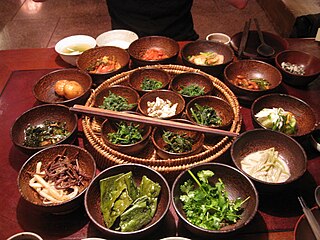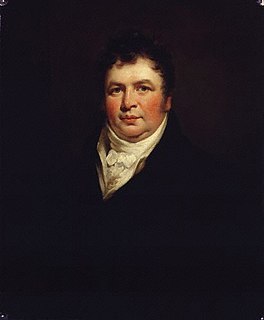
Veganism is the practice of abstaining from the use of animal products, particularly in diet, and an associated philosophy that rejects the commodity status of animals. A follower of the diet or the philosophy is known as a vegan. Distinctions may be made between several categories of veganism. Dietary vegans refrain from consuming meat, eggs, dairy products, and any other animal-derived substances. An ethical vegan is someone who not only follows a vegan diet but extends the philosophy into other areas of their lives, and opposes the use of animals for any purpose. Another term is "environmental veganism", which refers to the avoidance of animal products on the premise that the industrial farming of animals is environmentally damaging and unsustainable.

Vegetarianism is the practice of abstaining from the consumption of meat, and may also include abstention from by-products of animal slaughter.

A lacto-vegetarian diet is a diet that includes vegetables as well as dairy products such as milk, cheese, yogurt, butter, ghee, cream, and kefir.
Christian vegetarianism is the practice of keeping to a vegetarian lifestyle for reasons connected to or derived from the Christian faith. The three primary reasons are spiritual, nutritional, and ethical. The ethical reasons may include a concern for God's creation or a concern for animal welfare. Likewise, Christian veganism is the abstaining from the use of all animal products for reasons connected to or derived from the Christian faith.

Vegetarianism is strongly linked with a number of Dharmic traditions (religions) that originated in ancient India,. In Jainism, vegetarianism is mandatory for everyone; in Hinduism and Mahayana Buddhism, it is promoted by scriptures and religious authorities but is not mandatory. Comparatively, in the Abrahamic religions, the Bahá'í Faith and certain Dharmic religion such as Sikhism, vegetarianism is less commonly viewed as a religious obligation, although in all these faiths there are groups actively promoting vegetarianism on religious grounds.

The question of whether it is right to eat animal flesh is among the most prominent topics in food ethics. People choose not to eat meat for various reasons such as concern for animal welfare, the environmental impact of meat production, and health considerations. Some argue that slaughtering animals solely because people enjoy the taste of meat is morally wrong or unjustifiable. Vegans often abstain from other animal products for similar reasons.

Buddhist vegetarianism is the belief in following a vegetarian diet is implied in the Buddha's teaching. In Buddhism, however, the views on vegetarianism vary between different schools of thought. The Mahayana schools generally recommend a vegetarian diet; according to some sutras the Buddha himself insisted that his followers should not eat the flesh of any sentient being.

The earliest records of vegetarianism as a concept and practice amongst a significant number of people are from ancient India, especially the Jains. and the ancient Greek civilizations in southern Italy and Greece. In both instances, the diet was closely connected with the idea of nonviolence toward animals, and was promoted by religious groups and philosophers.
A semi-vegetarian diet (SVD), also called a flexitarian diet, is one that is centered around plant foods and with the occasional inclusion of meat. In 2003, the American Dialect Society voted flexitarian as the year's most useful word. Flexitarian is a portmanteau of the words flexible and vegetarian, signifying its followers' less strict diet pattern when compared to other vegetarian pattern diets.

Diet in Hinduism varies with its diverse traditions. The ancient and medieval Hindu texts recommend ahimsa—non-violence against all life forms including animals because they believe that it minimizes animal deaths. Many Hindus follow a vegetarian or lacto-vegetarian diet that are in sync with nature, compassionate, respectful of other life forms.

Sir Richard Phillips was an English schoolteacher, author, publisher and vegetarianism activist.

Vegetarianism in the Romantic Era refers to the rise of vegetarianism associated with the Romanticism movement in Western Europe from the eighteenth to the nineteenth century. Many of the late Romantics argued in favor of a more natural diet which excluded animal flesh for a plethora of reasons including the state of human and animal health, religious beliefs, economy and class division, animal rights, literary influence, as well as from new ideas about anthropology, consumerism, and evolution. The modern vegetarian and vegan movements borrow some of the same principles from the late Romantics to promote the adoption of diets free from animal products.

Pescetarianism or pescatarianism is the practice of adhering to a diet that incorporates seafood as the only source of meat in an otherwise vegetarian diet. Most pescetarians are ovo-lacto vegetarians who eat seafood along with dairy products and eggs.

Jewish vegetarianism is a commitment to vegetarianism that is connected to Judaism, Jewish ethics or Jewish identity. Jewish vegetarians often cite Jewish principles regarding animal welfare, environmental ethics, moral character, and health as reasons for adopting a vegetarian or vegan diet.

William Lambe, FRCP was an English physician and pioneer of vegetarianism.

Jacques Louis Buttner was a French American physician and vegetarianism activist.

An Essay on Abstinence from Animal Food, as a Moral Duty is a book on ethical vegetarianism and animal rights written by Joseph Ritson, first published in 1802.

Figs or Pigs? is an 1896 manual on vegetarianism and fruitarianism compiled by James Madison Allen, which contains observations from the author, as well as numerous quotations from eminent authors and authorities.
Horace A. Barrows was a physician who practiced in Western Maine in the early 19th century, made and sold plant-based medicines and prescribed a vegetarian diet.

The Meat Fetish is a 1904 essay by Ernest Crosby on vegetarianism and animal rights. It was subsequently published as a pamphlet the following year, with an additional essay by Élisée Reclus, entitled The Meat Fetish: Two Essays on Vegetarianism.




















